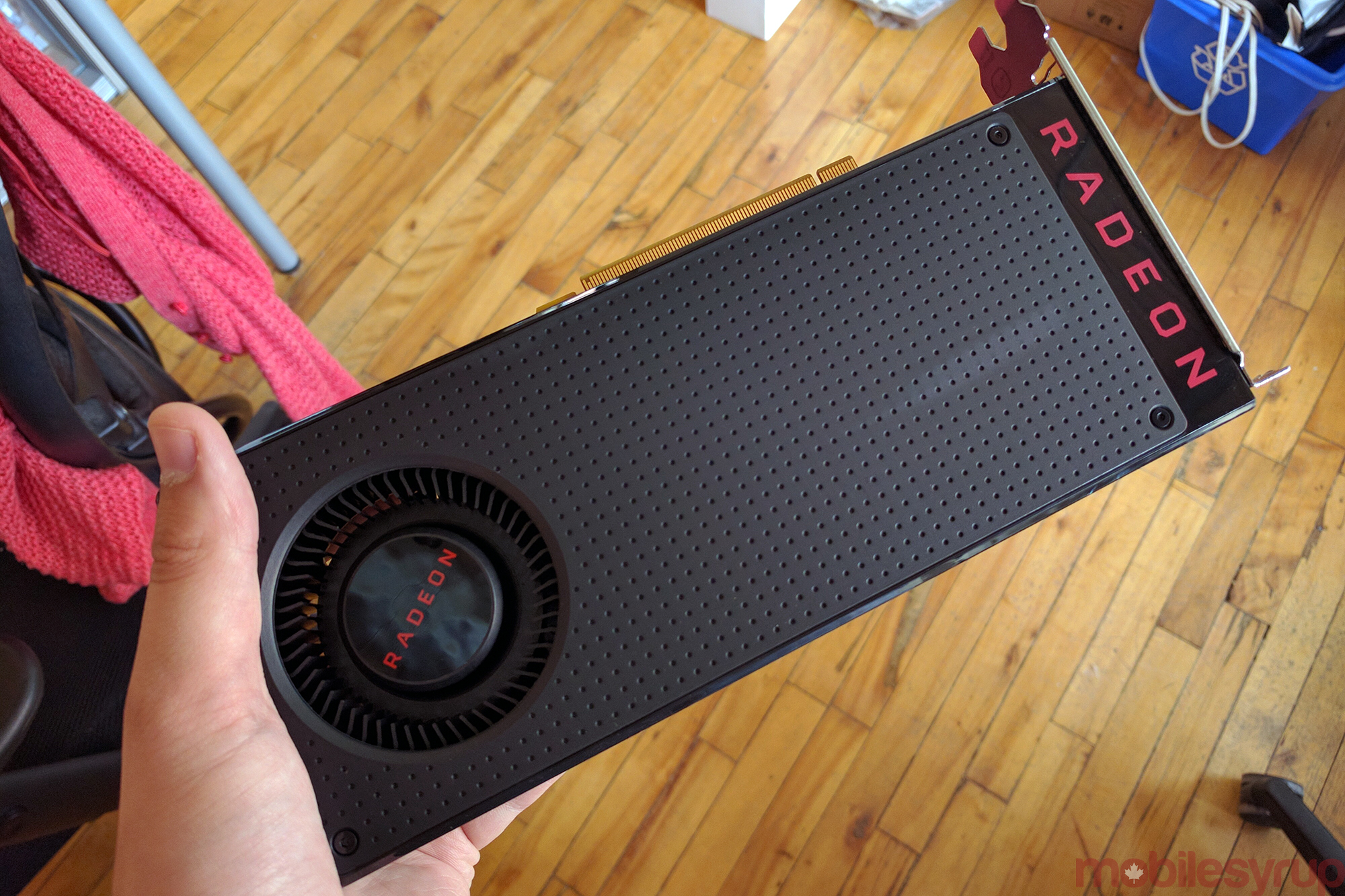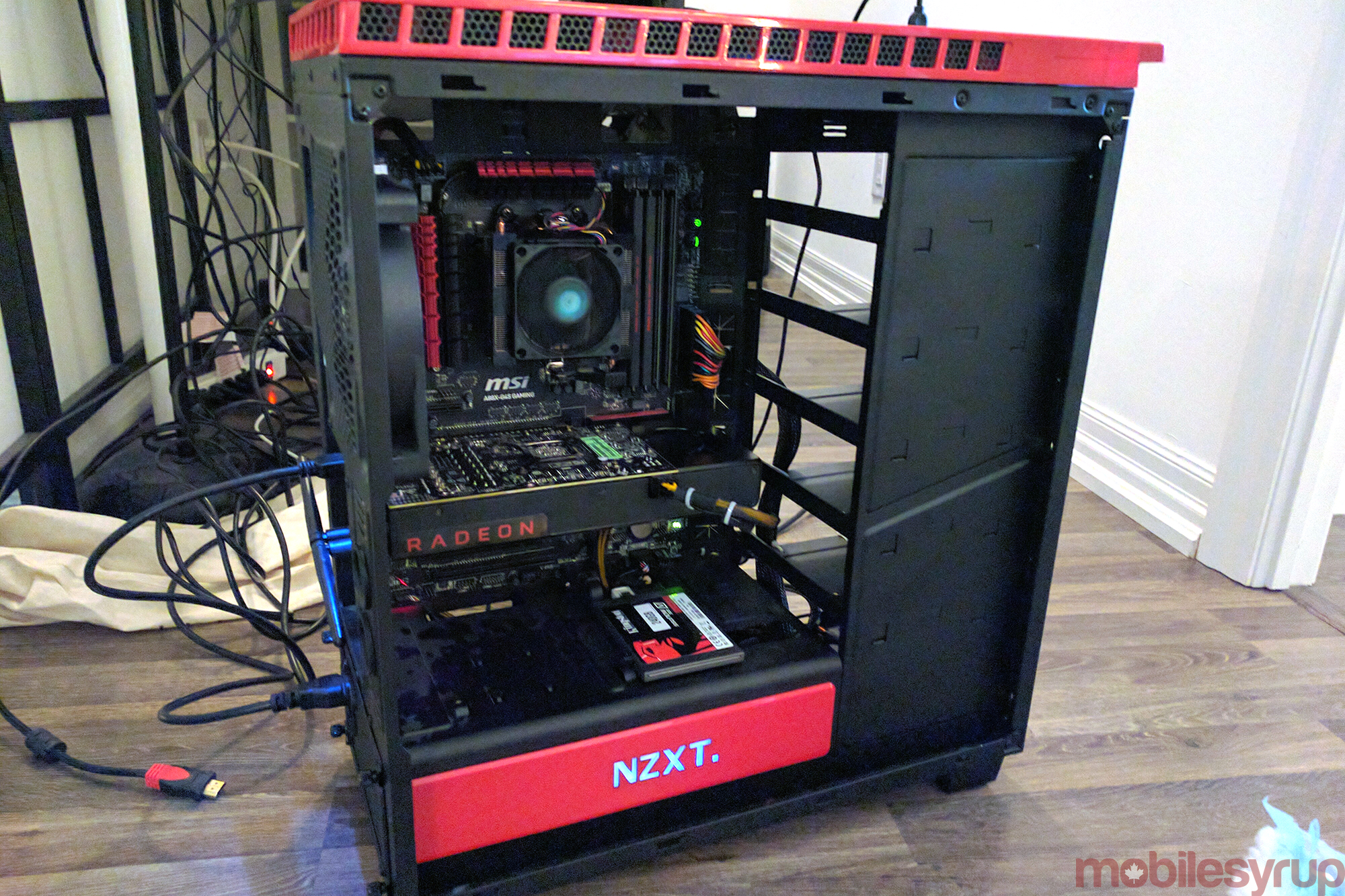
High-end virtual reality is extremely expensive and likely still will be for some time.
First, you need a high-end PC to power tethered headsets like the Oculus Rift and HTC Vive, which will run anywhere from $1000 to around $2000, depending on if you purchase a prebuilt rig, or opt to construct your own PC. Then, you need to purchase the headset itself, with the Vive costing $1250 and the Rift being priced at $914.
A new graphics card from AMD, however, a silicon manufacturer that has fallen behind Nvidia over the last few years, its main competitor, is poised to change that. The RX 480 8GB is priced at just $359 Canadian (it sells for $239 in the U.S.) and is designed specifically to be just powerful enough to run VR as well as modern high-end games at decent settings.
So while the RX 480 is benchmarking under Nvidia’s recently released GTX 1070, in some cases by a considerably margin, for its reasonable price tag, you get a significant amount of power, especially if you purchase two 480s and take advantage of AMDs crossfire technology, allowing PC gamers to utilize two graphics cards at the same time (which is still cheaper than one GTX 1080 in Canada).
To put the card’s power in perspective, the RX 480 outperformed the more expensive GTX 980 Ti and Titan X with most games according to various benchmark tests performed by different publications, though it is slower than the Nvidia’s GTX 1070 and 1080. It’s also worth noting that the graphics card only uses 150w of power, an additional bonus for those with low-wattage PSUs (power sources).
While my testing of the RX 480 hasn’t been that extensive (I’ve run into motherboard compatibility issues that will be resolved shortly), in my experience, AMD’s latest Polaris architecture-based silicon can handle high-end gaming with ease and most VR experiences (through the HTC Vive) with few issues. Only a few occasions during graphically intense experiences like Vanishing Realms has the RX 480 stuttered, and this is with an ancient AMD A10-5800K APU.
While Nvidia’s GTX 1070 and 1080 at one point seemed like they would be the cards to watch given their $379 USD and $599 USD price tags, that’s certainly not the case outside of the U.S. In Canada, the mark-up for the 1070 has the price landing at between $599 and $650 for the 1070, and the 1080 costing somewhere in the $850 to $929 range for the founders edition right now. Stock for most cards has also been very limited, especially in Canada.
AMD’s Sapphire Radeon RX 480 8GB GDDR5 graphics card is available for $359 at Canada Computers. The 4G variant of the card costs $199 USD but does not seem to be available in Canada yet.
We’ll be taking a closer, more in-depth look at the RX 480 in the coming weeks.



